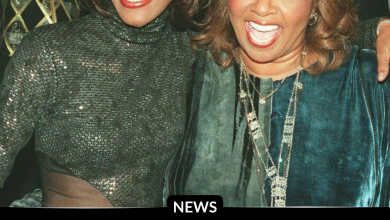The Bond Girl Who Beat the Curse: How Barbara Carrera Refused to Be Typecast
OPINION: This article may contain commentary which reflects the author's opinion.
In the world of James Bond, being a “Bond girl” was once seen as both a glamorous role and a career risk. For decades, the title came with instant global recognition — and an equally fast descent into typecasting. But one woman refused to play along. Barbara Carrera, the sultry and sharp Fatima Blush in Never Say Never Again, didn’t just survive the infamous “Bond girl curse.” She outmaneuvered it entirely.
Carrera’s path was different from the beginning. By the time she starred opposite Sean Connery in the 1983 Thunderball reimagining — the only unofficial Bond movie — she was already a rising name in Hollywood. A two-time Golden Globe nominee, Carrera had shared the screen with Paul Newman, Rock Hudson, and Burt Lancaster. Working alongside Connery didn’t intimidate her — it was just another high-profile collaboration.
But as soon as the Bond dust settled, Hollywood predictably came calling with a string of femme fatale roles. Producers and casting directors tried to capitalize on her dangerous charm as Fatima Blush. “They did try,” Carrera told The New York Times. “Every role I got offered was bad-woman roles, bad women, bad women. And I just kept turning them down.”
It wasn’t easy. Carrera admits that she passed on some “really great” roles because they echoed the seductive villainess type that had made her famous. But she was determined to build a career rooted in range, not repetition. “I wanted so much to be a serious actress,” she said. “I wanted to be great and do serious work.”
That deliberate defiance paid off. While other Bond women struggled to find roles outside the shadow of their 007 alter-egos, Carrera thrived. She landed a pivotal 25-episode arc on Dallas during the show’s peak and even replaced the legendary Bette Davis in Wicked Stepmother. She starred in the lavish miniseries Emma: Queen of the South Seas, and worked with acting titans like Laurence Olivier and Peter O’Toole — all while avoiding the cinematic trapdoor that had swallowed so many of her peers.
Carrera’s story is more than just a Bond footnote. It’s a blueprint for reclaiming agency in an industry that too often defines women by a single role. While others may have basked in the Bond spotlight only to be burned by it, Barbara Carrera knew when to walk away — and in doing so, wrote her own legacy.



